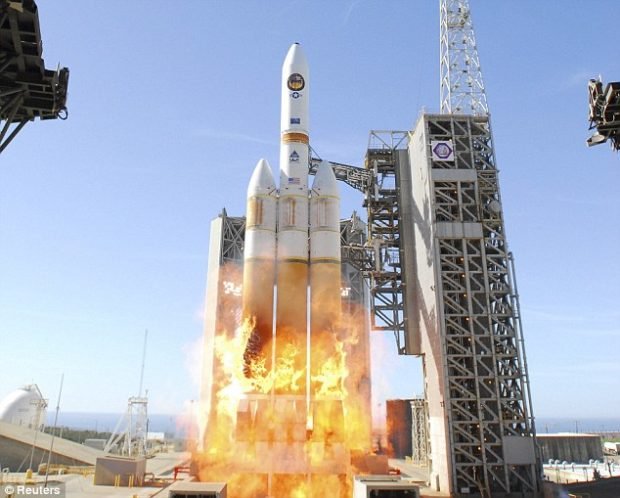Why You Should be Skeptical About Man-Made Climate Change

Climate change refers to a change in global or regional climate patterns. Since the mid 20th century, scientists have attributed it to factors such as increased levels of atmospheric carbon dioxide. These gases are produced by human activity, through the use of fossil fuels.
Despite its seemingly simple definition and correlation between fossil fuel usage and rising CO2 levels, there is still a big debate on the exact cause of climate change. While some support the notion that human activity has made the most significant impact on the climate, others don’t follow the same sentiments. Many conservatives acknowledge that the climate changes. However, they are skeptical about whether anthropogenic, or, man-made climate change is as big of a threat as the media or liberal politicians have indicated.

With all the talk about climate change, it can sometimes be hard to differentiate fact from fiction. Are conservatives wrong for being skeptical about the effects of anthropogenic climate change? Are liberals right to be concerned about rising sea levels and changing weather patterns as existential threats due to human activities? Let’s consider the facts.
Wasn’t the World Supposed to End Already?
Contrary to popular belief, we are all in this together. At the very least, most people want the Earth to be clean and healthy so that their offspring can continue to thrive. Part of the reason why climate change is such a polarizing topic is that no one can pinpoint its real significant source. Furthermore, politicians, educators, and scientists have been vocalizing their concerns for years. Simultaneously, while it’s true that CO2 levels have risen, the frightening environmental predictions made by these groups have yet to materialize. This has resulted in climate or apocalypse fatigue, which has many individuals doubting the seriousness of anthropogenic climate change.
There are many reasons that people are skeptical about anthropogenic climate change. For example, on October 6, 1970, acclaimed biologist Dr. Ehrlich prophesized that “America will be subject to water rationing by 1974 and food rationing by 1980.” His prediction proved false, along with the predictions of others. Ehrlich is now the president of Stanford University’s Center for Conservation Biology, despite his unscientific, doomsday predictions. Clearer data must be presented to persuade Americans to support the theory of anthropogenic climate change.
Environmental Resources Are Costly
“Climate deniers,” or individuals that are skeptical about anthropogenic climate change, are also concerned about the economic costs of overdramatizing the state of the environment. In the U.S., our government’s financial resources are limited to the tax revenue it collects from its citizens. Therefore, it is essential to make sure that we are making claims supported by data to avoid mishandling funds collected from American citizens. A clear example of good intentions that ultimately had unpleasant consequences is the case of Yellowstone National Park. While many groups wanted to aid this national treasure, due to inadequate information, they ended up doing more harm than good. Species loss and environmental degradation are just a few adverse effects that the park experienced. It was only after the reintroduction of wolves to the ecosystem that both predator and prey began to thrive again. Therefore, ecological skeptics are making the argument that if we are going to take anthropogenic climate change seriously, we must have adequate information. If not, the consequences may be severe.
Temperatures and Sea Levels Are Rising

For the past 12,000 years, temperature and sea levels have been on the rise. While the media makes it seem like rising temperature and sea levels are a new phenomenon, it has been happening since before the Industrial Revolution. The beginning of the Industrial Revolution marked the start of our dependence on fossils fuels. Fossil fuel is a natural fuel such as coal or gas, thought to have formed in the geological past from the remains of living organisms. Climate activists are concerned that utilizing fossil fuels has contributed significantly to rising CO2 levels, and by extension, climate change. But here’s what’s interesting. While it’s true that CO2 levels have risen in recent history, ice core samples show that CO2 levels were actually much higher in the past billion years than they are today. It is true that human behaviors have led to an increase in CO2 production in the past few years. However, there is currently no way to measure how much of the rise in CO2 is due to human activity. Furthermore, there is no proof of a causal relationship between rising CO2 levels, and significant increases in temperature or sea-level rise.
Climate Models Are Inaccurate
Climate models are inaccurate. Yes, the very same models that are designed to provide us with explicit confirmation of the realness of climate change are not exactly precise. Even the most acclaimed scientist have not crafted up a reputable enough model to publish. Yet, politicians and media outlets still use the available inaccurate model sets. Some of the reasons include so that they can sensationalize climate change and portray an incorrect image of our environmental reality.
The moral of the story is, the climate is changing, but we are still here. It is possible that human activities have an effect on the climate. However, it is a fact that natural fluctuations of the Earth are due to natural occurrences, such as solar activity and changes in the earth’s orbit. We should not stop studying the effects that our activities may have on the planet. But we should be realistic about these potential effects, and the greater context of the positive aspects of modern technology. Automobiles and other technology that burns fuel have led to substantial decreases in poverty, and greater access to resources and information. Curbing those activities could have the opposite effect on humankind, despite the good intentions of climate activists.




